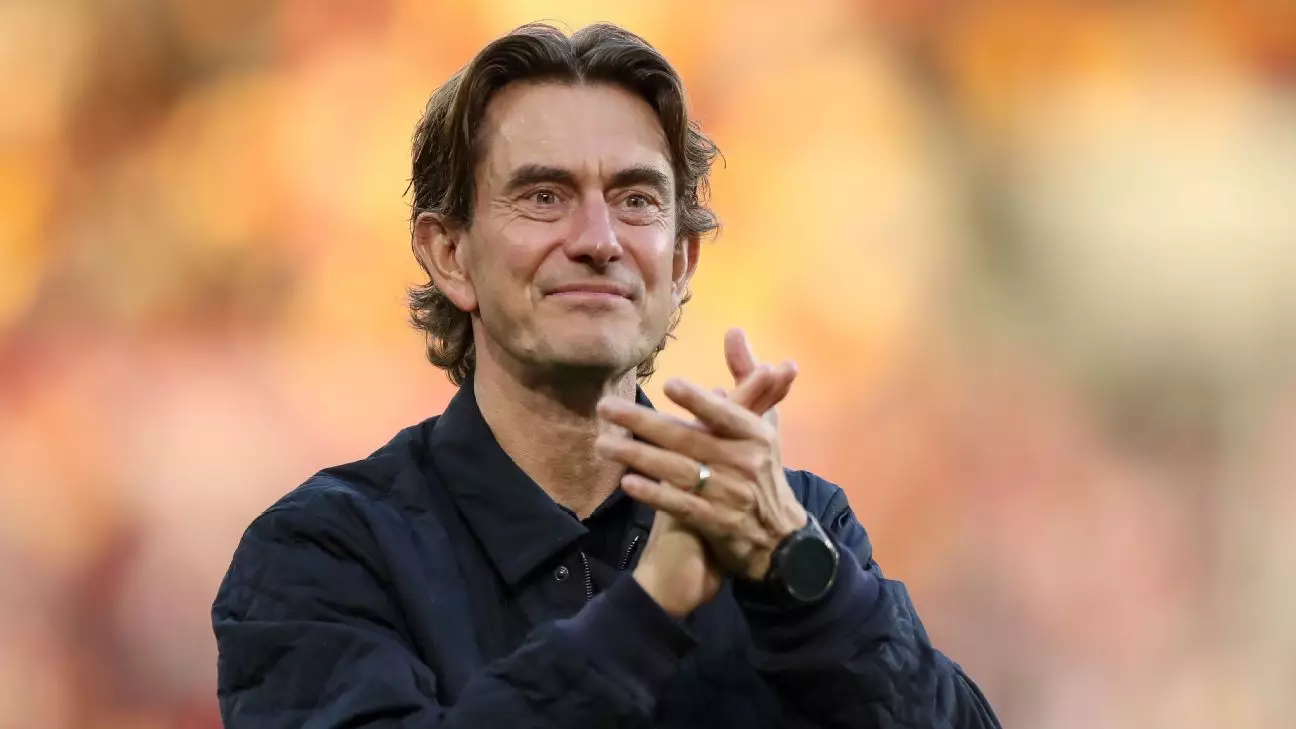The recent dismissal of Ange Postecoglou as Tottenham Hotspur manager marks a watershed moment in the club’s ambitions, emphasizing a fundamental need for strategic transformation. While Postecoglou garnered attention for ending a trophy drought, winning the Europa League, the harsh reality remains that his tenure was marred by an alarming 22 league losses. This juxtaposition of achievement and failure encapsulates the perilous balancing act faced by modern football clubs: the quest for immediate success against the necessity for sustainable growth.
Among the names floated to take the helm is Brentford’s Thomas Frank. His remarkable capability to cultivate talent and foster a positive team environment bestows him with an edge over other candidates. Since steering Brentford into the Premier League, Frank has not only stabilized the club but effectively maximized the potential of players like Bryan Mbeumo and Yoane Wissa despite limited financial resources. His success story reveals that effective management is not solely rooted in signing star players but in enhancing existing skills within a cohesive unit. This philosophy could serve Tottenham well as they seek to redefine their identity.
The Case for Marco Silva: A Proven Track Record
Marco Silva’s credentials offer another compelling option for Spurs. His recent history at Fulham showcases a manager who understands the intricacies of both promotion battles and the challenges of maintaining Premier League status. Silva has cultivated a side that not only knows how to fight for points but also plays attractive football. His experience at Hull City and Everton further amplifies his readiness to tackle the pressures of a high-stakes environment such as Tottenham. For a club desperate to rekindle its spirit and legacy, bringing in a manager like Silva could reinvigorate a fractured fan base and team morale.
Let’s not neglect Andoni Iraola of Bournemouth, who has also emerged as a serious contender for the Tottenham role. His ability to secure a 15th place finish while achieving remarkable victories over heavyweights like Arsenal, Manchester City, and Newcastle United signals a manager who’s not intimidated by the occasion. The tactical adaptability he displayed in the face of established rivals provides a glimmer of promise and suggests he could maneuver Spurs into a more competitive position in the league.
A Fork in the Road for Tottenham Hotspur
As Spurs navigate through this transitional phase, the stakes could not be higher. The choice of their next manager will set a tone for the club’s trajectory, impacting player recruitment, fan engagement, and long-term objectives. While trophies hold indelible value in football culture, Tottenham must prioritize developing a resilient team ethos, ensuring that any prospective manager possesses the capability to balance ambition with pragmatism.
In the landscape of managerial appointments, it is vital for clubs to pursue not merely a quick fix but an enlightened strategy that could foster a culture of success. Whether it’s Frank’s nurturing approach, Silva’s operational finesse, or Iraola’s confrontational tactics, each candidate brings unique strengths that could give Spurs the innovative leadership they desperately need. The question remains: who will harness this potential to guide Tottenham towards a brighter future?

